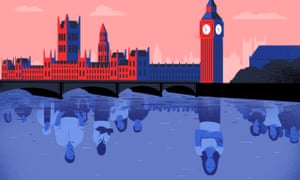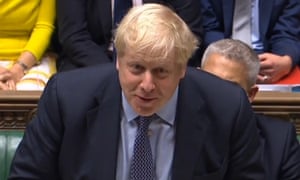
Nawaz Sharif is reportedly at death’s door. He has been treated in a most inhumane and callous manner while in custody. This is a thrice-elected prime minister who voluntarily returned from London and went to prison. This is a man who was kept in jail while his wife was dying in London. This is a man who has been convicted by the Supreme Court on the thread of a loose definition of “assets” in an unauthorized reference dictionary in the prejudicial context of “Sicilian Mafia”. This is a man who has been convicted by a judge who was blackmailed to get his conviction. This is a man who has resolutely resisted the various offerings of the Establishment to leave Pakistan and quit politics. His crime: he ran afoul of the Establishment by mistaking the elected office of prime minister for the font of power in Pakistan. Worse, he refused to learn and repent.
---Also watch
----
Popular opinion holds that Imran Khan is personally responsible for Nawaz Sharif’s deteriorating health. His government has tightened the screws by withdrawing all manner of decent prison and medical facilities befitting an ex-prime minister. Yet when a reporter recently confronted Mr Khan with this perception, “he threw his arms up with a bewildered look on his face: ‘Am I the doctor? Am I the court’?” The reporter added that shortly thereafter Mr Khan called up the Punjab Chief Minister Usman Buzdar and ordered him to arrange a meeting between Nawaz Sharif and his daughter Mariam. A day earlier, Mariam’s request for such a meeting had been denied by a NAB accountability court. Clearly, Mr Khan has answered his own questions.
Mr Khan also told reporters that there was a “foreign hand” behind Maulana Fazal ur Rahman’s long march and dharna. Incredibly enough, he pointed a finger at India! If he had hinted at another foreign power with which the Jamiat-e-Ulema-e-Islam and its leader has had traditional religious relations, he might have been less incredible. But how could he have summoned up the courage to bite the hand that feeds him?
The Maulana is still talking tough. But suspicions have arisen about his aims and objectives. It has been reported that he met Establishment Big Wigs recently and was told flatly that there would be no minus-Imran solution and that there might be other “minuses” amongst politicians. Curiously, opposition party activists are being arrested daily even as Mr Khan has belatedly allowed the dharma to proceed to Islamabad. The Establishment has reportedly told the Maulana that his dharna should be short and peaceful, otherwise it would do its “constitutional duty” to protect the “lawful” government. This is in sharp contrast to what it did during Mr Khan’s long drawn out dharna.
The fate of Nawaz Sharif hangs in the balance. Some “connected” journalists are claiming that both father and daughter will be allowed to go to London without an NRO because Nawaz is precariously ill and the Establishment doesn’t want his blood on their hands – they are still reaping the political backlash from the assassinations of two Bhuttos. The popular mood in the Punjab – the recruiting ground and bulwark of the Establishment – has palpably turned against it. This is unprecedented.
We – people and institutions – are all drinking from a poisoned chalice. Imran Khan is guzzling from the poisoned chalice of a rigged election. The people are choking on the poisoned chalice of the IMF. The opposition parties and leaders are swallowing from the poisoned chalice of their corruptions and commissions. The Establishment is gulping from the poisoned chalice of its regional adventures and internal interventions. The judiciary is swigging from the poisoned chalice of its great betrayal of the lawyers’ movement.
This need not have been the case. Only six years ago, we witnessed a peaceful transfer of power, the second consecutive handing over of the baton from one elected government to the next. The judiciary gave hope with its newly grown spine courtesy the successful lawyers’ movement. The media, though raucous, was reverberating with the din of democracy. Nawaz Sharif’s government was making regional alliances and reaching out to neighbours. The 18th Amendment had devolved power to the provinces, fulfilling a long-standing demand of Pakistan’s alienated ethnic populations. This was in the natural order of things: the system growing, changing, adapting, on the road to cleansing itself.
But these very changes threatened to whittle down the power of Pakistan’s deep state. The latter’s response was concerted and fierce. We all know what happened thereafter but it is deeply ironical that we are once again desperate for the reprieves that were all within grasp only a few years ago – peace at home and goodwill abroad, relief from international punitive actions, a buoyant economy, a developing democracy worthy of respect. We cannot upturn the natural order of things and expect to come up trumps again and again. Our chalices will remain poisoned until we purge ourselves.
Mr Khan also told reporters that there was a “foreign hand” behind Maulana Fazal ur Rahman’s long march and dharna. Incredibly enough, he pointed a finger at India! If he had hinted at another foreign power with which the Jamiat-e-Ulema-e-Islam and its leader has had traditional religious relations, he might have been less incredible. But how could he have summoned up the courage to bite the hand that feeds him?
The Maulana is still talking tough. But suspicions have arisen about his aims and objectives. It has been reported that he met Establishment Big Wigs recently and was told flatly that there would be no minus-Imran solution and that there might be other “minuses” amongst politicians. Curiously, opposition party activists are being arrested daily even as Mr Khan has belatedly allowed the dharma to proceed to Islamabad. The Establishment has reportedly told the Maulana that his dharna should be short and peaceful, otherwise it would do its “constitutional duty” to protect the “lawful” government. This is in sharp contrast to what it did during Mr Khan’s long drawn out dharna.
The fate of Nawaz Sharif hangs in the balance. Some “connected” journalists are claiming that both father and daughter will be allowed to go to London without an NRO because Nawaz is precariously ill and the Establishment doesn’t want his blood on their hands – they are still reaping the political backlash from the assassinations of two Bhuttos. The popular mood in the Punjab – the recruiting ground and bulwark of the Establishment – has palpably turned against it. This is unprecedented.
We – people and institutions – are all drinking from a poisoned chalice. Imran Khan is guzzling from the poisoned chalice of a rigged election. The people are choking on the poisoned chalice of the IMF. The opposition parties and leaders are swallowing from the poisoned chalice of their corruptions and commissions. The Establishment is gulping from the poisoned chalice of its regional adventures and internal interventions. The judiciary is swigging from the poisoned chalice of its great betrayal of the lawyers’ movement.
This need not have been the case. Only six years ago, we witnessed a peaceful transfer of power, the second consecutive handing over of the baton from one elected government to the next. The judiciary gave hope with its newly grown spine courtesy the successful lawyers’ movement. The media, though raucous, was reverberating with the din of democracy. Nawaz Sharif’s government was making regional alliances and reaching out to neighbours. The 18th Amendment had devolved power to the provinces, fulfilling a long-standing demand of Pakistan’s alienated ethnic populations. This was in the natural order of things: the system growing, changing, adapting, on the road to cleansing itself.
But these very changes threatened to whittle down the power of Pakistan’s deep state. The latter’s response was concerted and fierce. We all know what happened thereafter but it is deeply ironical that we are once again desperate for the reprieves that were all within grasp only a few years ago – peace at home and goodwill abroad, relief from international punitive actions, a buoyant economy, a developing democracy worthy of respect. We cannot upturn the natural order of things and expect to come up trumps again and again. Our chalices will remain poisoned until we purge ourselves.



